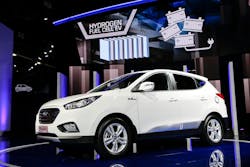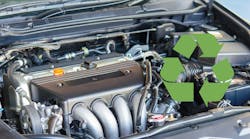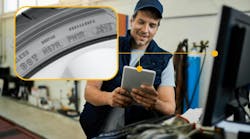Cars that run on hydrogen and exhaust only water vapor are emerging to challenge electric vehicles as the world's transportation of the future.
At auto shows on two continents earlier this week, three automakers unveiled hydrogen fuel cell vehicles to be delivered to the general public as early as next spring.
Hyundai Motor Co. will be the first to the mass market in the U.S.
It unveiled a hydrogen-powered Tucson small SUV at the Los Angeles Auto Show that will be leased to consumers. Honda also revealed plans in Los Angeles for a car due out in 2015.
Earlier, at the Tokyo Motor Show, Toyota promised a mass-produced fuel cell car by 2015 in Japan and 2016 in the U.S.
Some concerns
Hydrogen cars are appealing because unlike electric vehicles, they have the range of a typical gasoline car and can be refueled quickly. Experts say the industry also has overcome safety and reliability concerns that have hindered distribution in the past.
But hydrogen cars still have a glaring downside - refueling stations are scarce and costly to build.
Consumers can expect costs in line with some luxury models. In Tokyo, Toyota promised a price of $50,000 to $100,000, and as close to the lower figure as possible.
That's comparable to its Lexus luxury sedans, but a range that makes the once space-age experiment with fuel cells more credible.
Hyundai said it will lease the Tucsons for $499 per month for three years with $3,000 down. The company is offering to pay the hydrogen and maintenance costs.
Hyundai company will start leasing in the Los Angeles area, where most of the state's nine fueling stations are located. California lawmakers have allocated $100 million to build 100 more.
Honda wouldn't reveal any pricing details.
Research has continued
Even as battery-powered and hybrid-electric cars took on conventional gasoline models in the past decade, automakers continued research into hydrogen fuel cells, said Paul Mutolo, director of external partnerships for the Cornell University Energy Materials Center. Manufacturers now are limited only by costs and the lack of filling stations, he said.
Hydrogen cars, Mutolo said, have an advantage over battery-powered electric cars because drivers don't have to worry about running out of electricity and having to wait hours for recharging. "It's very similar to the kind of behavior that drivers have come to expect from their gasoline cars," he said.
Hydrogen fuel cells use a complex chemical process to separate electrons and protons in hydrogen gas molecules. The electrons move toward a positive pole, and the movement creates electricity. That powers a car's electric motor, which turns the wheels.
Since the hydrogen isn't burned, there's no pollution. Instead, oxygen also is pumped into the system, and when it meets the hydrogen ions and electrons, that creates water and heat. The only byproduct is water. A fuel cell produces only about one volt of electricity, so many are stacked to generate enough juice.
Hydrogen costs as little as $3 for an amount needed to power a car the same distance as a gallon of gasoline, Mutolo said.
Manufacturers likely will lose money on hydrogen cars at first, but costs will decrease as precious metals are reduced in the fuel cells, Mutolo said.
Going forward
Toyota said its new fuel cell vehicle will go on sale in Japan in 2015 and within a year later in Europe and U.S.
Toyota's fuel cell car is a "concept" model called FCV that looks similar to the Prius gas-electric hybrid.
Honda, which has leased about two-dozen fuel cell cars since 2005, took the wraps off a futuristic-looking FCEV concept vehicle in Los Angeles. It shows the style of a 300-mile range fuel cell car that will be marketed in the U.S. and Japan in 2015.
Stephen Ellis, manager of fuel cell marketing for Honda, also wouldn't say where vehicle will be marketed in the U.S. But he expects hydrogen fueling stations to be abundant first in California, and then Northeast states.
He predicts it will take five years for the stations to reach significant numbers outside California, and up to 25 years to go nationwide.
Hyundai wouldn't say how many fuel-cell Tucsons it expects to lease. The company believes that fuel cells will power the next generation of cars, appealing to affluent, environmentally conscious customers because affordable battery technology has not advanced enough.
"This is the sort of technology that makes batteries look old-fashioned," says North American CEO John Krafcik.
But skeptics say hydrogen fueling stations are more expensive than electric car charging stations, partly because electricity is almost everywhere and new and safe ways for producing, storing and transferring hydrogen will be needed.
Carlos Ghosn, chief executive of Nissan Motor Co., which has bet heavily on electric vehicles for its future, is one vocal skeptic.
"Having a prototype is easy. The challenge is mass-marketing," he told reporters. He said he did not see a mass-market fuel cell as viable before 2020.


